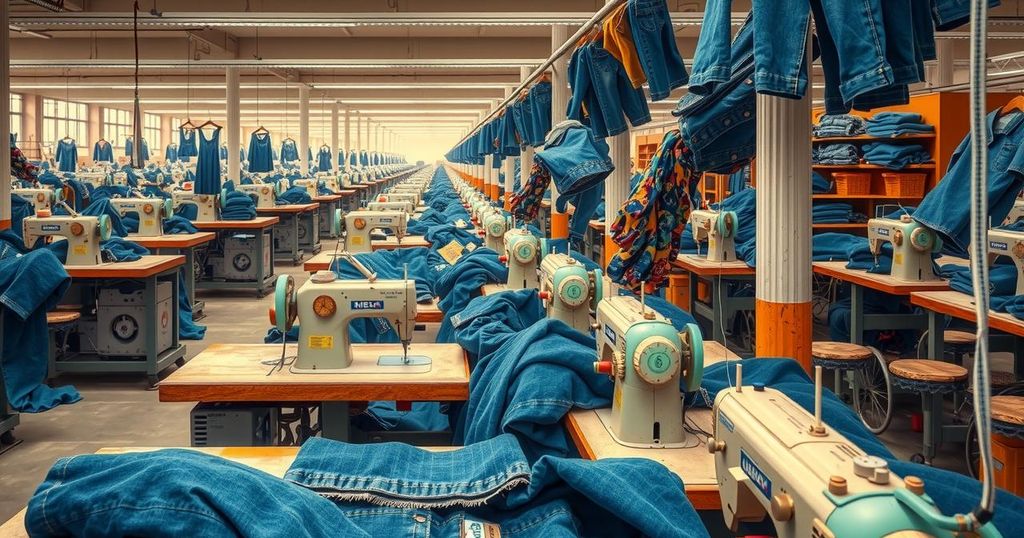Lesotho Faces Economic Threat from Potential U.S. Trade Policy Changes

Lesotho’s economy is threatened by potential shifts in U.S. trade policy under President Trump. The nation’s garment industry employs many individuals and is crucial for economic stability. Uncertain changes in trade relations could adversely affect this sector, emphasizing the need for sustained international agreements to protect local jobs and economic health.
Lesotho’s economy, already struggling, faces further challenges due to changes in U.S. policies under President Donald Trump. The country relies heavily on its garment industry, which produces clothing for major retailers. Factories, like those in the capital, Maseru, employ hundreds and are critical to the local economy through exports. Workers in these facilities produce goods primarily for the U.S. and South African markets, contributing substantially to their livelihoods and the nation’s GDP.
The garment manufacturing sector in Lesotho is vital for creating jobs and aiding economic stability. However, any shifts in U.S. trade policy could have a detrimental impact on these factories, especially as they produce items such as jeans sold by well-known brands. The uncertainty regarding the future poses a risk, as local employment and economic health are directly tied to international demand and trade agreements.
In conclusion, Lesotho’s fragile economy faces serious risks from potential policy changes introduced by President Trump’s administration. The country’s garment industry is pivotal for employment and economic health, producing goods for international markets. The continuing stability of Lesotho’s economy will depend significantly on maintaining favorable trade relations and addressing the challenges that may arise from such geopolitical shifts.
Original Source: www.northwestsignal.net







